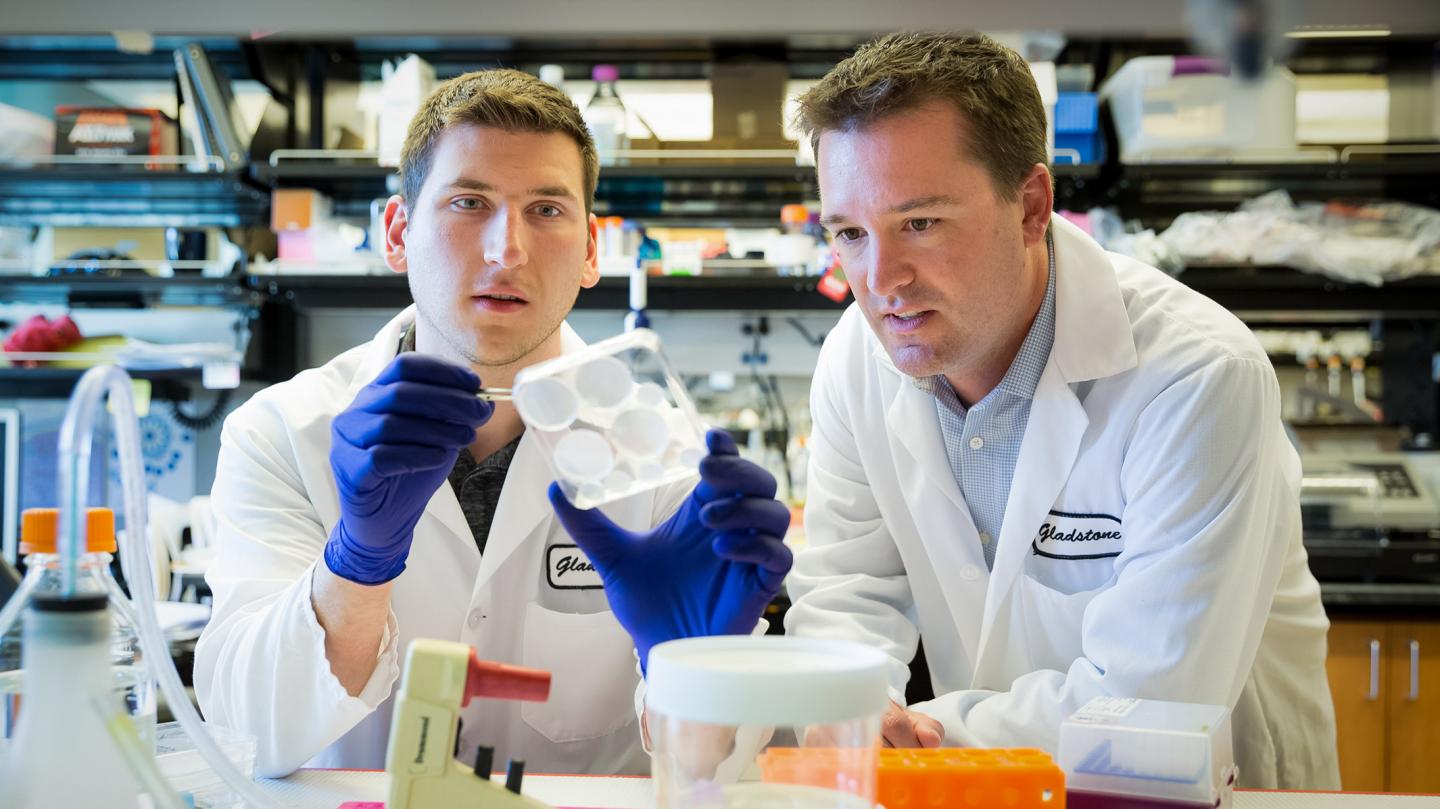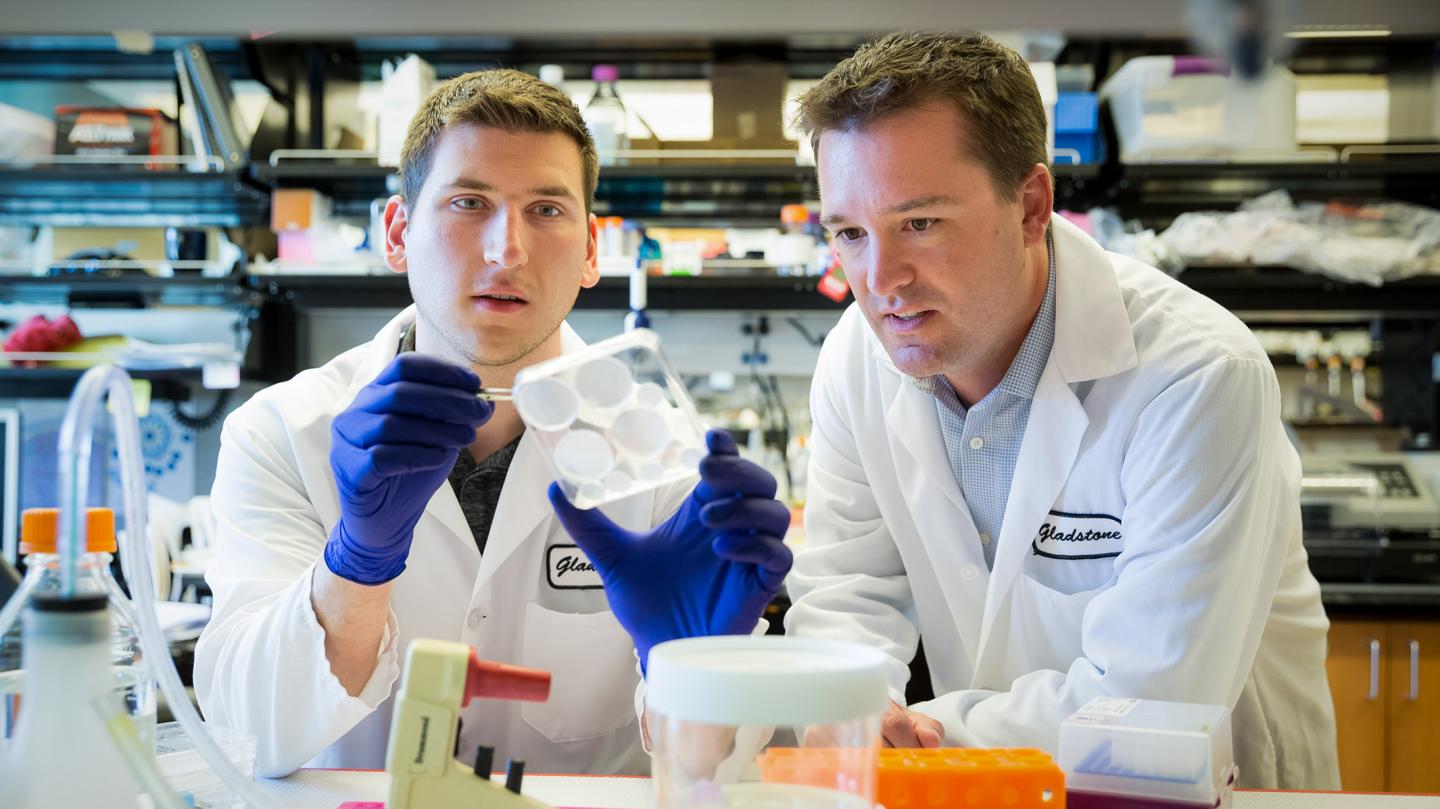
SAN FRANCISCO, CA–With a trick of engineering, scientists at the Gladstone Institutes improved a potential weapon against inflammation and autoimmune disorders. Their work could one day benefit patients who suffer from inflammatory bowel disease or organ transplant rejection.
The Body’s Natural Defense
Mesenchymal stromal cells (MSCs) reside in bone marrow and have been found to secrete anti-inflammatory proteins that help regulate the immune system. More than 500 clinical trials are trying to use these cells to fight diseases, but so far, many have failed.
Scientists think this failure may be because, like a match needs to be sparked to create a flame, MSCs must be triggered by pro-inflammatory proteins to produce their immune-suppressing effects. Some studies have tried soaking MSCs in a bath of pro-inflammatory chemicals before injecting the cells into a patient. However, the effects are short-lived, wearing off after just a few days.
“The success of therapies involving MSCs depends on the cells’ environment,” explained Todd McDevitt, PhD, a senior investigator at Gladstone. “A patient taking anti-inflammatory medication may not have high enough levels of inflammation to trigger the cells. We engineered the MSCs to ensure that they are consistently activated, so they can reliably dampen the immune response for longer.”
Engineering A Better Method
In the new study, published in Stem Cells Translational Medicine, the scientists engineered tiny sugar-based particles that they loaded with pro-inflammatory proteins and stuck into the middle of clusters of MSCs. The particles slowly delivered the inflammatory trigger to the cells in a steady dose. This method increased the amount of anti-inflammatory proteins produced by the MSCs, enhancing the suppression of immune cells. In short, the cell-protein packets worked better and longer than other treatments.
“No one has successfully used biomaterials to deliver pro-inflammatory signals to control how MSCs affect the immune system,” said first author Josh Zimmerman, PhD, a former graduate student in the McDevitt lab. “Our research suggests bioengineering has real potential to improve the anti-inflammatory and therapeutic abilities of MSCs. The next step is to test this method in a mouse model of autoimmune disease.”
###
Marian Hettiaratchi from Georgia Tech also took part in the research. Funding was provided by the National Institute of Allergy and Infectious Diseases, the National Science Foundation Graduate Research Fellowship Program, the National Science Foundation Stem Cell Biomanufacturing Integrative Graduate Education and Research Traineeship Program, and the National Center for Advancing Translational Sciences, National Institutes of Health, through UCSF-CTSI UL 1 TR000004.
About the Gladstone Institutes
To ensure our work does the greatest good, the Gladstone Institutes focuses on conditions with profound medical, economic, and social impact–unsolved diseases of the brain, the heart, and the immune system. Affiliated with the University of California, San Francisco, Gladstone is an independent, nonprofit life science research organization that uses visionary science and technology to overcome disease.
Media Contact
Megan McDevitt
[email protected]
404-547-3519
@GladstoneInst
http://www.gladstone.org
The post How to engineer a stronger immune system appeared first on Scienmag.





